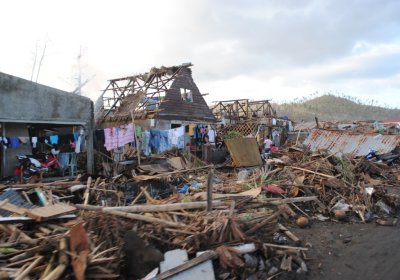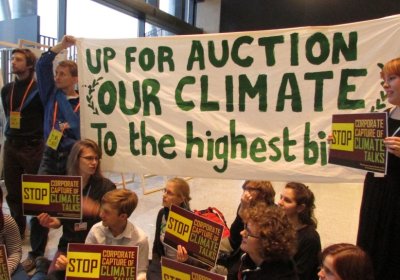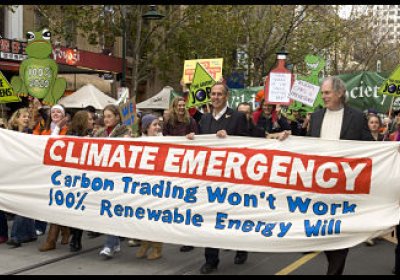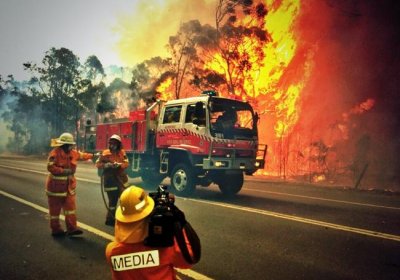Land & Labour: Marxism, Ecology & Human History
Martin Empson
Bookmarks Publications
London, 2014
With several serious global environmental crises bearing down on us, the question of our age must be “what can we do?”
British socialist Martin Empson urges us to look into the past and into the future for answers in his new book Land and Labour. His message is that human destruction of its environment is not inevitable, although it is very likely if we don’t draw upon the best and worst examples from humanity’s diverse experience.
Simon Butler
Despite two court decisions rejecting Rio Tinto’s bid to expand a Hunter Valley coalmine, the expansion may still go ahead under NSW government rules that allow the company to override environmental concerns and local community objections.
If you want evidence that the corporate rich are turning “sustainable” into a dirty word, then consider the recent award won by Australian bank Westpac. At last month’s World Economic Forum in Davos, Switzerland, the bank was named the most sustainable company in the world.
It’s wrong to think that we can campaign to stop climate change in the same way we might campaign to end a war. All the evidence says we are well past that stage now. That is, even if by some impossible, magical course of events all carbon pollution on Earth was stopped tomorrow, we’d still be in really, really deep trouble.
So many greenhouse gases have been pumped into the Earth’s atmosphere that we have rushed far past the safe upper limit — the famous 350 parts per million of CO2, the number that climate action group 350.org took for its name.
At the recent UN climate talks in Poland, poor nations and NGOs singled out the Australian delegation for doing the most to block progress on a new deal to cut carbon emissions.
There is one obvious answer to the climate change crisis that is rarely up for discussion — the government has to take the lead with a huge green public investment drive.
PM Tony Abbott has repeatedly said climate change has absolutely nothing to do with the recent record-breaking spring bushfires in NSW. Such ideas are “hogwash”, he told News Limited’s Andrew Bolt.
The claims associate his government with the most extreme climate change denial and explode Abbott’s carefully fashioned pre-election image as someone who now accepts the science but merely opposes costly action.
Mainstream media outlets gave substantial coverage to the UN’s new report on the climate change crisis late last month, which said the Earth’s climate is warming faster than at any point in the past 65 million years and that human activity is the cause.
Disappointingly, though not unsurprisingly, the news reports dried up after only a few days.
About 1000 people packed the Sydney Opera House on September 16 for a public forum featuring Guardian journalist Glenn Greenwald, WikiLeaks editor-in-chief Julian Assange, Chelsea Manning’s defense lawyer David Coombs, independent US journalist Alexa O’Brien and Australian academic Robert Manne.
Australia’s recent federal election should be remembered as the election that forgot about climate change. Serious action to address climate change was a non-issue for the two big parties and the mainstream media, despite the country experiencing its second-warmest August, second-warmest winter and warmest 12-month period on record.
The NSW firefighters union has slammed the Barry O’Farrell state government for recent budget cuts that left five fire stations closed as more than 60 bushfires raged across the state on September 10.
The WikiLeaks Party has come under fire for its Western Australia and New South Wales preference allocations for the federal elections, which put right-wing and racist groups ahead of Greens and socialist candidates.
WikiLeaks Party senate candidate for Western Australia, Gerry Georgatos, has defended a decision to preference two National Party candidates ahead of Greens Senator Scott Ludlam. Of all Australian parliamentarians, Ludlam has been the most outspoken in defence of WikiLeaks and Julian Assange.
- Previous page
- Page 3
- Next page











